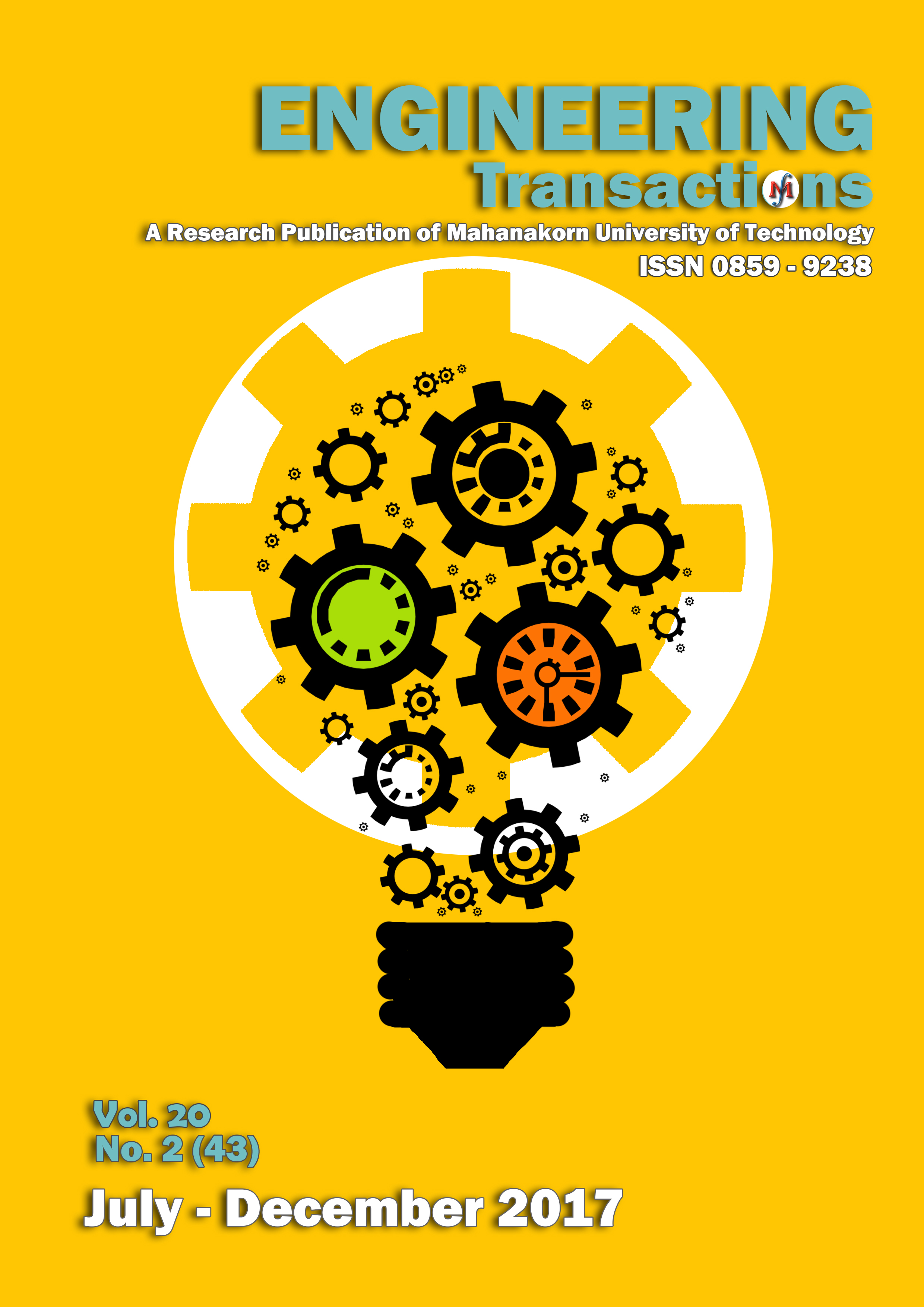The Development of Outcome-based education Approach in Electrical circuit analysis courses of the Faculty of Engineering Mahanakorn University of Technology
Main Article Content
Abstract
This paper presents the learning management model in the course of “Electric Circuit Analysis” using Learning Outcome-based Education. This is a result-oriented learning approach while the students are centered and lecturers (or instructors) will be responsible for organizing learning processes through a variety of activities that focus on active learning and problem-based learning. The objective of this approach is to develop the knowledge skills of students in two parts: such as the hard skills and soft skills.
Article Details
Copyright @2021 Engineering Transactions: A Research Publication of Mahanakorn University of Technology
Faculty of Engineering and Technology
Mahanakorn University of Technology
References
ปริญญา เทวานฤมิตรกุล, “การศึกษาที่มุ่งผลลัพธ์ (Outcome-based Education) โดยผู้เรียนเป็นศูนย์กลาง”, เอกสารประกอบการบรรยายเรื่อง “Active-Based Learning : What, Why and How?” และเรื่อง “workshop : How to Implement Active-Based Learning in Your Classroom?”, มหาวิทยาลัยเชียงใหม่, 1 เมษายน 2558
สุวัฒน เบญจพลพิทักษ์, “แนวทางการวัดผลแบบ outcome-based Assessment”, website “http://quality.sc.mahidol.ac.th/wp-content/uploads/2016/03/Outcome Based_Assessment_by_Suwat_2017.pdf”, มหาวิทยาลัยมหิดล
ไพศาล สุวรรณน้อย, “การเรียนรู้โดยใช้ปัญหาเป็นฐาน (Problem-based Learning:PBL)”, เอกสารประกอบการบรรยายโครงการพัฒนาการเรียนการสอน, มหาวิทยาลัยขอนแก่น, หน้า1-10.
ประสูตร เดชสุวรรณ,“การพัฒนารูปแบบการสอนบรรยายวิชาทางวิศวกรรมไฟฟ้าโดยเพิ่มส่วนปฏิบัติการซอฟต์แวร์ และฮาร์ดแวร์เสริมการสอน”, การประชุมมหานครวิชาการด้านงานวิจัยและเทคโนโลยีเพื่อการศึกษา ครั้งที่9, มหาวิทยาลัยเทคโนโลยีมหานคร, 21 กรกฎาคม 2559, หน้า 36-40.
Salman Khan, “Why Long Lecture Are Ineffective”, Time Education., websit: http://ideas.time.com/2012/10/02/why-lectures-are-ineffective/
Joan Middendorf and Alan Kalish, “The “Change-Up” in Lectures”, National Teaching & Learning Forum, vol. 5, no.2, pp. 1-12, Feb. 1996.


